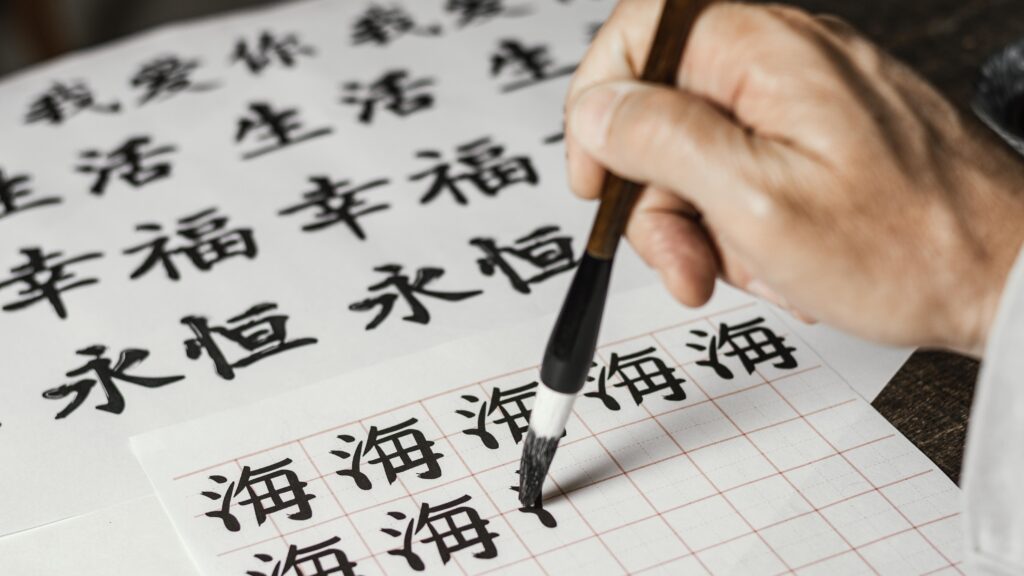Translate Idioms effectively from English to Chinese requires more than word-for-word conversion. Learn how to creatively adapt idiomatic expressions using flexible strategies—complete with examples and expert translation tips.
Strategies for Handling Idioms in Translation
Idioms are deeply rooted in culture, which means finding an exact match isn’t always possible. Here’s how to Translate Idioms successfully when dealing with cultural gaps:

Find a Cultural Equivalent – Some idioms have close Chinese counterparts. For example, “kill two birds with one stone” translates well to 一举两得.
Explain the Meaning – When no equivalent exists, rephrase the idea. “Spill the beans” (revealing a secret) can be translated as 透露秘密 rather than a literal “倒豆子”.
Use Metaphorical Adaptation – Some expressions work best when adapted metaphorically. “The ball is in your court” (it’s your turn to act) can be rewritten as 轮到你做决定了.
According to translation expert Eugene Nida, effective translation prioritizes meaning over literal accuracy, ensuring the target audience fully grasps the message.
How do idioms reflect culture?
Idioms aren’t just expressions—they reveal a society’s history, traditions, and way of thinking. That’s why learning how to Translate Idioms goes beyond language skills; it requires cultural insight.
Historical and Cultural Influences When You Translate Idioms
Different cultures shape idioms based on their unique experiences:
- Western idioms often come from sports, war, or daily life. “Throw in the towel” (from boxing) means to surrender.
- Chinese idioms (成语) are often rooted in classical literature or history, like 刻舟求剑 (kè zhōu qiú jiàn), meaning a rigid approach that ignores change.
- Japanese idioms (ことわざ) frequently reference nature, such as 花より団子 (hana yori dango)—“practicality over aesthetics.”
Idioms and Cultural Values
Idioms highlight what matters to a society:
- American idioms emphasize individualism and action: “Go the extra mile” (put in extra effort).
- Chinese idioms reflect collectivism and wisdom: 吃一堑, 长一智 (chī yī qiàn, zhǎng yī zhì)—”A setback leads to wisdom.”
- Arabic idioms often reference hospitality, like “He has bread and salt between them”, meaning a strong bond.
Common Chinese Idioms and Their Best Translations
| English Idiom | Literal Meaning | Best Chinese Equivalent |
|---|---|---|
| Break the ice | Ease tension in a group | 打破僵局 |
| Burn bridges | Ruin relationships permanently | 破釜沉舟 |
| Under the weather | Feeling sick | 身体不适 |
| Hit the nail on the head | Be exactly right | 一针见血 |
How to Choose the Right Approach?
When you Translate Idioms, always:
- Check for an equivalent first – If a similar Chinese idiom exists, use it.
- If not, rephrase naturally – Prioritize clarity over word-for-word accuracy.
- Consider the audience – Formal translations may require explanations, while casual ones allow for creative adaptation.
Translators who Translate Idioms across these cultures must capture both the meaning and the cultural depth. A good translator doesn’t just translate words but transfers meaning in a way that resonates with the target audience. Next time you come across an idiom, think beyond direct translation and consider its deeper impact.
Why Translate Idioms Carefully in Chinese Everyday Life

Idioms: The Essence of Chinese Communication
Idioms (成语) are deeply embedded in Chinese culture and language, shaping how people express ideas, convey wisdom, and communicate subtly. To sound fluent, one must know how to Translate Idioms into natural Chinese that carries the same emotional and cultural weight.
Why Are Idioms So Important?
- Concise Yet Powerful Expression – Chinese idioms often pack complex ideas into just four characters (e.g., 一举两得 for “killing two birds with one stone”), making speech and writing more efficient and impactful.
- Cultural and Historical Wisdom – Many idioms originate from ancient Chinese literature, philosophy, or folklore. For example, 破釜沉舟 (burn the boats) comes from a famous military story about committing fully to victory, highlighting determination and risk-taking.
- Politeness and Social Grace – Chinese people often use idioms in formal and polite speech. Instead of bluntly saying someone is hardworking, saying 孜孜不倦 (tirelessly diligent) sounds more respectful.
- Enhancing Persuasion and Argumentation – In business and diplomacy, idioms add credibility and eloquence. For example, in a negotiation, using 顺水推舟 (“push the boat along with the current”) implies seizing opportunities naturally, making the argument more persuasive.
- Everyday Conversations – Idioms are woven into casual speech, often replacing longer explanations. Instead of saying “He didn’t prepare but expects success,” a Chinese speaker might say 异想天开 (“wild fantasy”).
Idioms are more than linguistic tools—they carry the wisdom, values, and traditions of Chinese culture. Mastering them enhances fluency, cultural understanding, and communication effectiveness, making them essential for anyone engaging with the Chinese language. Navigating these nuances can be challenging, but our team is ready to assist you with accurate Chinese translations and help you overcome any language difficulties you encounter. Contact us today to discuss your project and see how expert support in translating idioms can make your communication more impactful and authentic.
High-Stakes Chinese Translation: 8 Types of Documents That Are Risky to Translate
How to Translate Chinese Writing – Beginner’s Guide to Top Tools & Services
